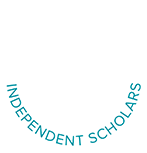
HOW-TO WORKSHOPS for Scholars
Sunday 8:45 am- 2:30 pm
Followed by Hands-On Mentoring Session
Chair: Amanda Haste
How To Write An Effective Abstract
Leslie Arthur, Facilitator
A good abstract will mean that your conference paper, book proposal or research project is welcomed with open arms. In this workshop you will deconstruct examples of abstracts – both good and bad – thereby revisiting the best way of contextualising and explaining your own work clearly and succinctly, and avoiding the pitfalls encountered by many.
How To Respond To Questions About Your Presentation
Leslie Arthur, Facilitator, with Amanda Haste
The Q&A is often the hardest part of an oral presentation, but this is an essential part of the scholarly discourse. This workshop will therefore provide you with strategies for handling questions, which you can then practise in a practical session in which participants will take turns as speaker, chair and audience members.
How Not To Lose It In Translation
Amanda Haste, Facilitator
This workshop covers two important facets of academic translation: translating your own work (whether for publication or to present at a conference) and how to handle translation of source material so as to ensure a nuanced reading. You will learn how to handle source material such as quotations or ethnographic data: deciding when to provide a translation, and whether to add a gloss explaining the subtleties of meaning to non-native speakers – particularly important when your analysis hinges on word-play, double meanings, and hidden cultural references.
How To Transform Research Into Reality: Writing For Your Venue And Audience
Constance Sherak, Therese B. Dykeman, Facilitators
An oral paper and a written publication are two very different animals, so in this workshop you will firstly explore the best ways of transforming your research into an interesting oral presentation (including the use of images and quotes). You will also learn about the aspects of style, register and target audience which come into play when you turn your oral presentation into a publishable article.
How To Produce a Book From your Research, Find your Audience, and Make Great Sales!
Marcus J. Freed, Facilitator
You are passionate about your work and you want to share it. In this session you will learn how to turn your research into a physical book, using readily-available software and apps including Evernote™, Scrivener™, Basecamp™, and Adobe-In-Design™. You will also learn how to finance your project and create your market using crowdfunding tools such as Indiegogo™, and about tools for promoting your work after it has been published, such as blogs, social media, YouTube™ and other people's podcasts. Bring a blank notepad and an open mind!
Our Presenters
Amanda Haste (PhD, University of Bristol) is an academic translator, researcher, and workshop leader. Her research interests include music and spirituality, authenticity and identity construction. She is a working musician who has published journal articles and books in her research interests including STEM and Humanities disciplines and she recently co-edited Constructing Identities in an Age of Globalization (2015). She has lectured and led workshops in England and France and was keynote speaker at the 2014 History of Women Religious conference in Glasgow.
Leslie Arthur (MS, Southern Connecticut State University, expected 2015) is an antiquarian bookseller after 17 years as a Complex Litigation Paralegal. She annually attends the Rare Book School at the University of Virginia and is a member of the Fine Art Trade Guild in London, UK.
Therese Boos Dykeman (PhD, Union Institute & University, Cincinnati) is an independent scholar and former adjunct professor, She is the author of several notable books on American women philosophers including the seven-volume Political and Philosophical Works of Catharine Beecher. She is currently writing a novella about Johannes Vermeer, Letters in Delft Blue. She is a member of the Center for Independent Study in New Haven.
Constance Sherak (PhD, Stanford University) has published articles on the poetics of Romantic architecture, Balzac, Duras, the Musée d’Orsay, Christo, and boulevard culture at Paris-Las Vegas. She taught at several New England colleges and is currently teaching in the French Department at Yale University. She is a member of the Center for Independent Study in New Haven.
Marcus J. Freed (MA, University of London) is an actor, writer, radio broadcaster for the BBC, entrepreneur and yoga teacher. He writes for several newspapers and teaches and consults on the Jewish approach to yoga. He lives in Los Angeles and London.
